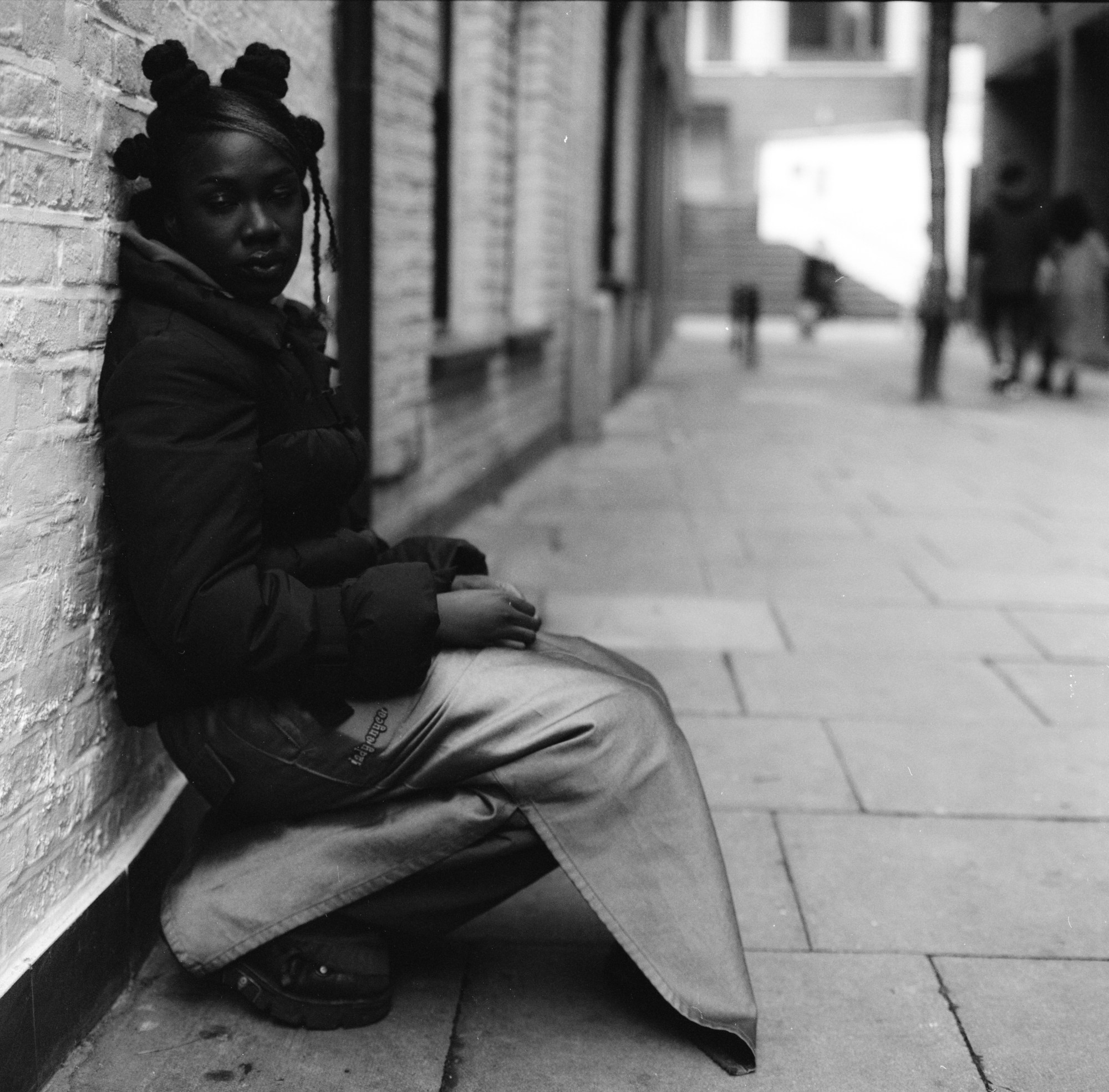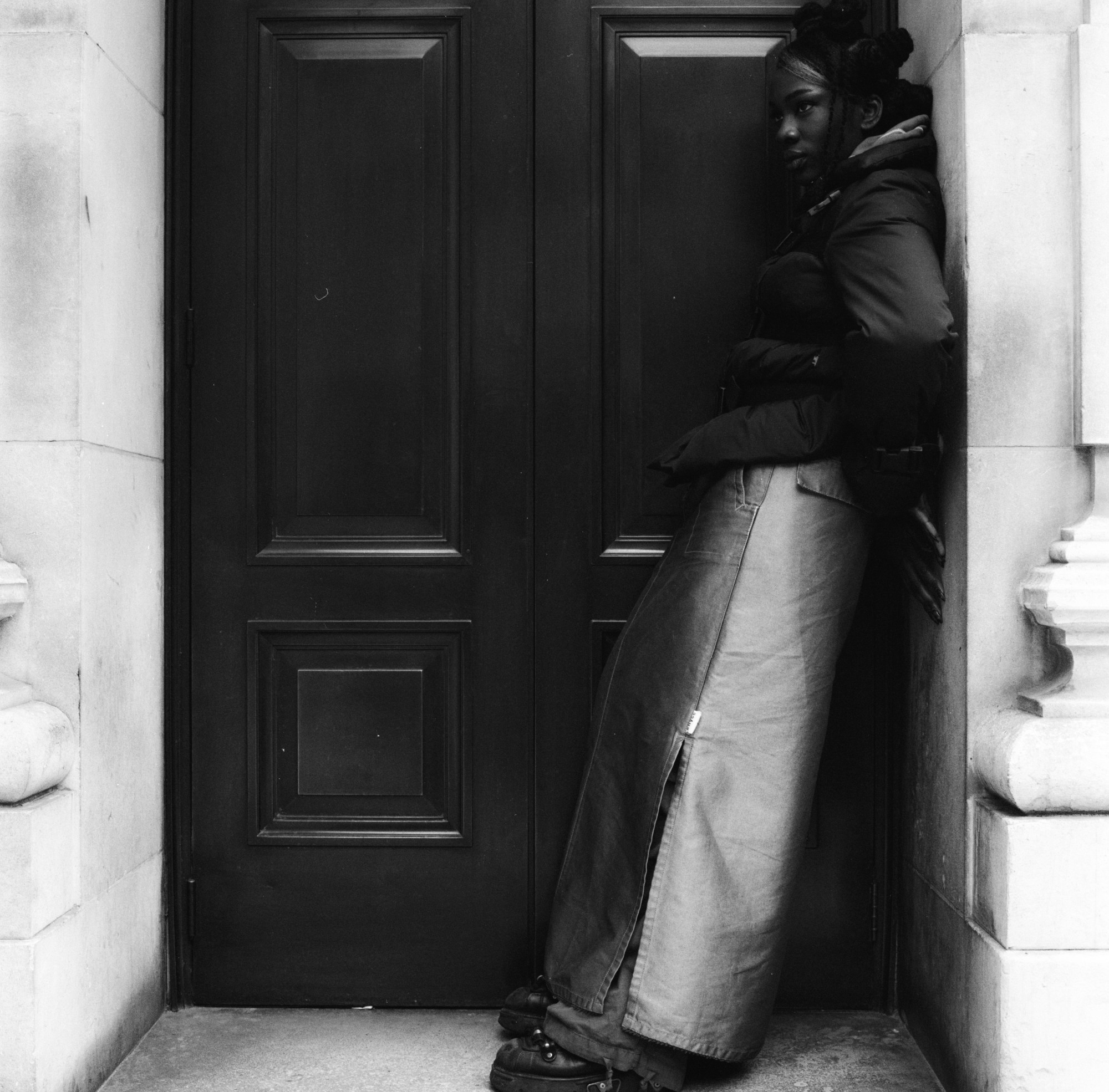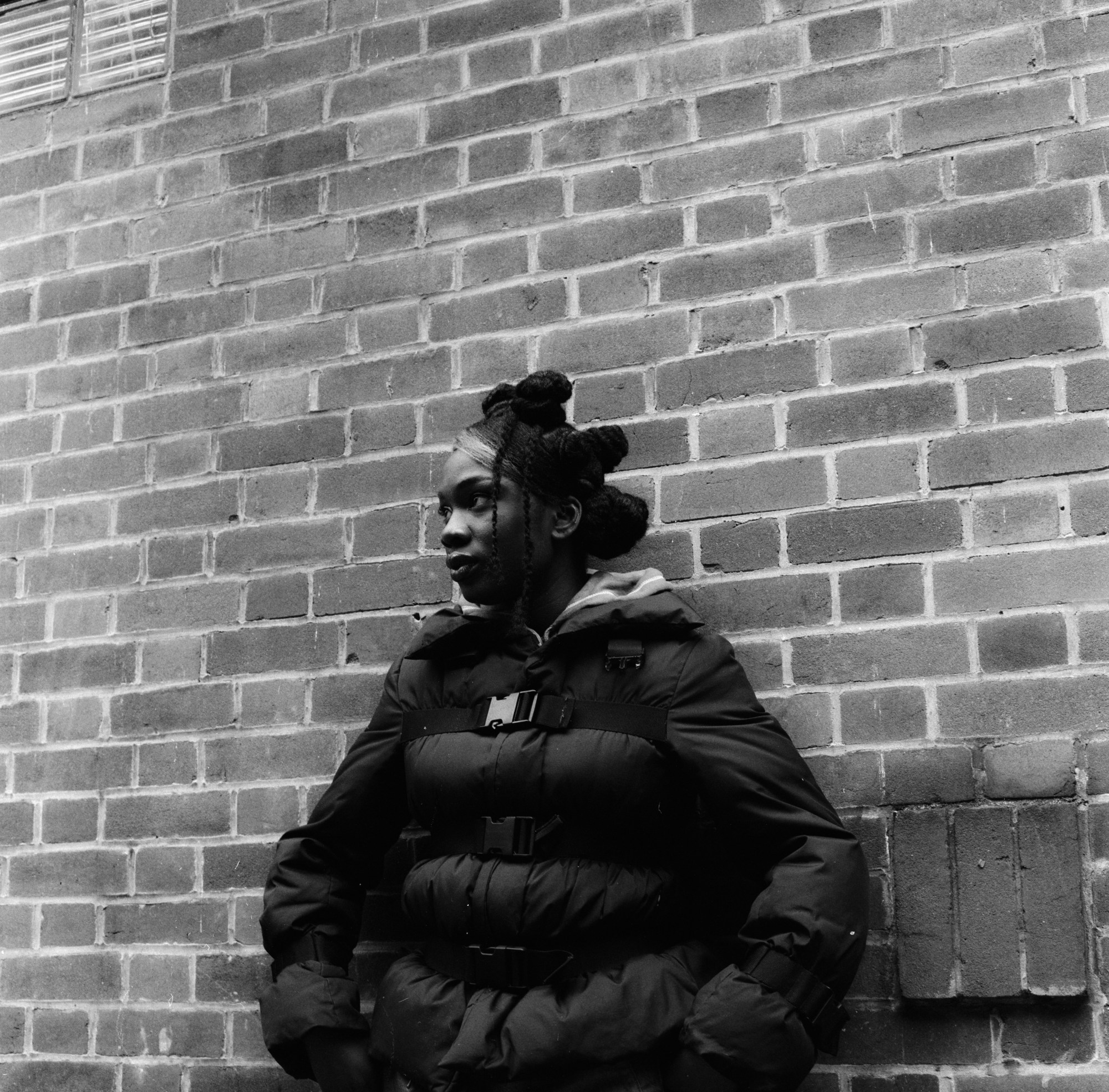It doesn’t feel like hyperbole to say Vivian Oparah is the lead actor of the best British rom-com of the past decade. Rye Lane, directed by first-time feature filmmaker Raine Allen-Miller, is a buoyant day-in-the-life of two young Black people, Yas and Dom, who meet at an art show in south London at what seems like a serendipitous moment. Both heartbroken — albeit one, Dom, better at showing it — they spend a day wandering around Peckham and Brixton, concealing and surrendering their humbling experiences of love and young adulthood.
“She’s really weird,” Vivian says of her character Yas when we meet in a London café. “I’ve never had a female character presented to me as so unapologetically messy, kind of insecure but, like, a brash dick at times. I was really interested in the challenge”. David Jonsson, known best for Industry, plays Dom, the more cautious and outwardly emotional of the couple. “In the chemistry read, I was just throwing him stuff and he was volleying it right back. I think they are both situated in the same emotional landscape, but they both feel really isolated. And then they come across each other, and they’re both what each other needs in that situation: Dom desperately needs the lightness that Yas offers, and Yas needs to be grounded and just face [her heartbreak].”
Shot between lockdowns, and premiering at Sundance Film Festival this year, the film has received a rave response. In his review, The Playlist’s Robert Daniels said that “not since Spike Lee introduced the world to Bed-Stuy, has a Black director so seamlessly embedded viewers into the verve and flavor of their neighborhood.” Traditionally hard-to-please broadsheet film critics have given it five stars. (A journalist has already questioned whether the film could further the gentrification of Peckham like Notting Hill did to that area in the 90s; the preposterous take has already been shut down on social media.)
“[Before it came out], I remember seeing all these tweets saying the rom-com is dead and I kept thinking to myself, ‘Wait guys! We have an offering!’” Vivian says. “I came out of the toilet at Sundance to a woman telling David we had reinvigorated the genre. It feels so mad because I would never ever imagine myself in a rom-com.”

Why was that? “Well, I went to the Pan African Film Festival in Los Angeles, and this guy said to me [directors] usually pair a dark skinned guy with a light skinned woman, or a white woman, to make it more palatable. He said it was beautiful to see us both on screen, and that really touched me. I’ve got big lips, a big nose… I look very Nigerian. My friend said to me it was nice to see a film where the characters don’t have an Instagram face.”
A born and raised first generation north Londoner and the youngest of four children to Nigerian parents, Vivian always knew she had creative impulses. “I hated school,” she says. “In my year thirteen English class it was a joke if I actually showed up. I was doing the work, I just hated the school environment.” Of her own accord, she knuckled down and got the grades to go to university to study neuroscience, “[but] I deferred my entry,” she says. There was an underlying feeling that the path it would set her on wasn’t the right one. Those creative impulses? “ I just didn’t know where they landed yet,” she says. “So I took a two-week summer course at the National Youth Theatre. Initially, I thought I bombed the audition, to the point where I forgot about it. Then I got an email saying I got in but it cost £400.” From a working-class family, it was her older brother who lovingly offered up the cash.
After the National Youth Theatre course, Vivian attended an open-call audition, landing the lead role as Tanya Adeola in a 2016 Doctor Who spin-off, Class. Stage performances in An Octoroon and Fanny & Alexander followed. “Doing plays and TV. I had a crisis of confidence, like a weird imposter syndrome,” Vivian says. “During that time too, I had also started teaching myself how to make music.”

When she mentions music, she sounds like a person on the other side of something; as if the medium helped her escape that rut. “Music reinvigorated my self-perception,” she says. “When I was acting, I didn’t believe in myself and wasn’t giving the opportunities the energy they deserved. I had an idea of what an ‘actor’ was, how an ‘actor’ would present themselves, stupid things like… social media. My interests felt so vast, but it was as if you had to be a blank canvas all the time.” It felt like a dilemma. “I love with my chest, you know? I love music, I love fashion, I love changing my appearance, it was like, ‘Damn, I have to surrender so much autonomy?’ Sometimes you can go so far from yourself that you never come home.”
She performs and releases music under Vivian Forever, as her own outlet — not necessarily a careerist ambition. One day, though, she would like to score a film: something by Guillermo Del Toro, “something fantastical where I can infuse an animated space with something electronic and experimental.”
Whether kismet or by design, after feeling out of place in the acting world, that Vivian should return starring in the debut feature of a fellow young Black woman is a perfect symbiosis. “Raine is like a big sister to me now,” she says. “I just feel so inspired by how unapologetically devoted she is to her vision. She has such integrity in the way that she works.”

She recalls initially feeling uncomfortable with Yas’ hairstyle. “I went home and I just texted Raine, and she’s just like, ‘Whatever you want to do to make you comfortable’. I felt like I could just have that shorthand with her as a Black woman. There’s no way I would have ever texted another director, white woman or a white dude [like that]. I don’t think they would have understood in the same way, Black women and our hair and what it means to us and how we feel about it. How complex the feelings are around it, especially when you have to feel like you’re giving up control.” The racist hair and make-up practises on movie sets are well-documented, so it’s notable that an early career actor could be supported in this way. “Bianca [Simone Scott, hair stylist] was so right for those locs, because they look good, and I grew to love them.” So much so, she kept them after the shoot wrapped.
As an artist and as a Black woman, projection comes thick and fast when you fail to reach impossible standards. Up close with Vivian, in control and beaming with potential, she is nobody’s blank canvas.
After Rye Lane, Vivian’s next project is a little more raucous: Then You Run, a British television series about a group of teenagers on holiday in Rotterdam who inadvertently end up on the run from rich drug dealers. She describes her character, Stink, as if “Cook from Skins and Nathan from Misfits had a baby”. It’s a role that sounds tailor made to sharpen another tool in her evolving kit.
“I’m just trying to pitch the next move,” Vivian says of her future in film and music. “But I’m excited about it all. I’m feeling very, very blessed.”
Credits
Photography Milo Matthew
